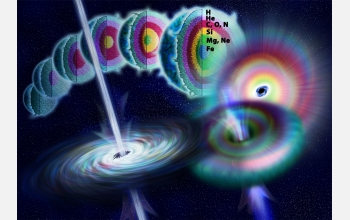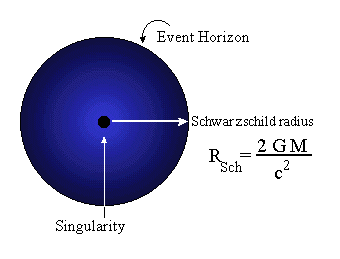Question #55222
1 Answer
No, a black hole by definition is a mass that has been compressed into an infinitely small volume called a singularity.
Explanation:
Black holes are commonly formed during the supernova of very massive stars. These stars spend most of their life in a stable equilibrium between gravity trying to collapse the star inward and the explosive force of fusion trying to blow the star outward. Once the star begins to fuse iron nuclei, however, fusion is no longer able to balance gravity, and the star rapidly begins to collapse.
 http://www.nsf.gov/news/news_images.jsp?cntn_id=104440&org=NSF
http://www.nsf.gov/news/news_images.jsp?cntn_id=104440&org=NSF
The bulk of the star creates enough gravitational pressure that the core is able to overcome electron degeneracy and neutron degeneracy. At this point there is no force in the universe capable of halting the collapse, which only stops when the volume of the mass is zero. This is the singularity of the black hole. Because the volume is already equal to zero, the singularity cannot be compressed any more, even as more mass is added.
 http://www.astro.cornell.edu/academics/courses/astro201/bh_structure.htm
http://www.astro.cornell.edu/academics/courses/astro201/bh_structure.htm
The event horizon of a black hole, however, has a nonzero size. It is described as the point of no return, where the escape velocity of the gravity well is equal to the speed of light. The radius of the event horizon is determined by the mass of the black hole, and while it cannot be compressed due to gravity, it can shrink as a result of Hawking radiation as the black hole evaporates.

